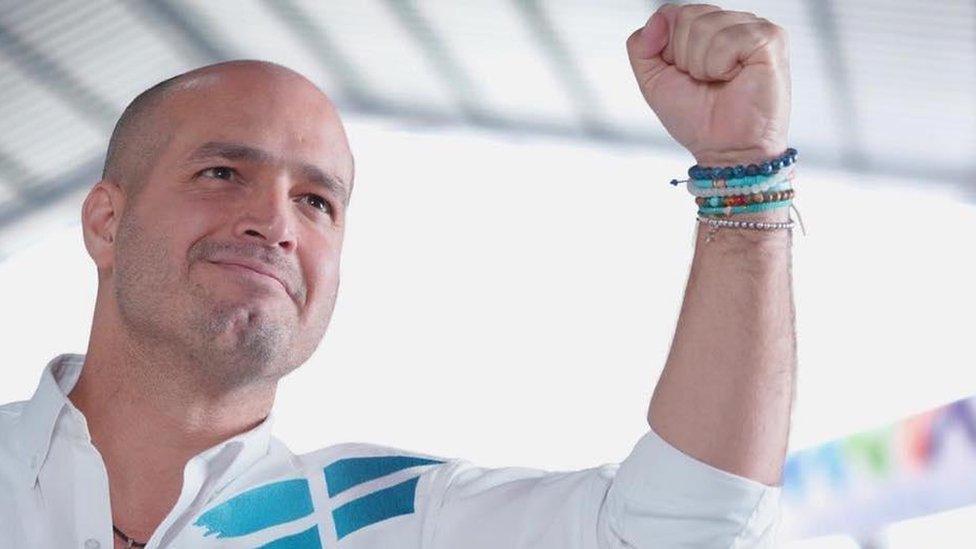Ecuador divided after bloody election campaign
- Published
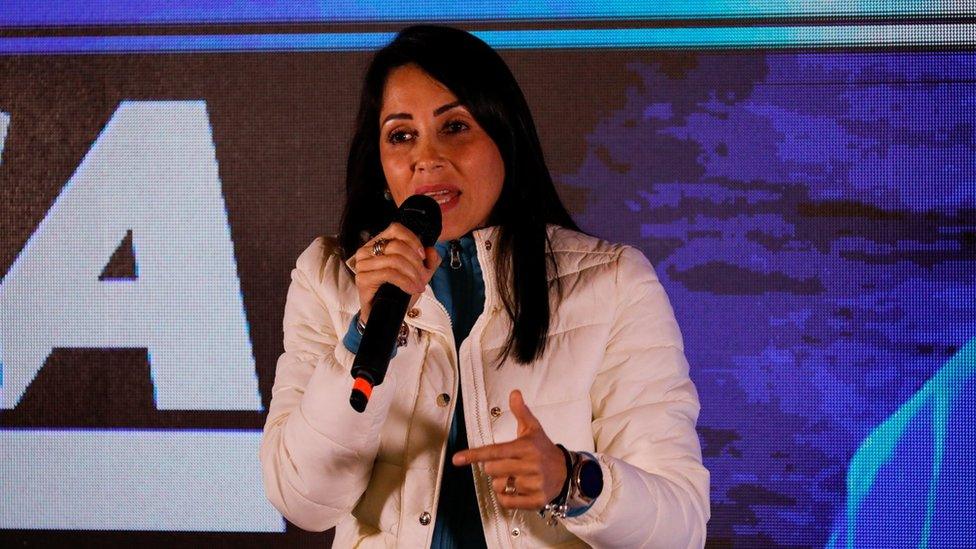
Luisa Gonzalez's victory in the first round did not come as a surprise - but she now faces a tougher run-off
The assassination of Fernando Villavicencio upended the final week of campaigning in Ecuador.
All eight candidates talked about the need for peace and security - and after an often bloody campaign, that was a message that Ecuadoreans very much wanted to hear.
After Mr Villavicencio's death, a local politician was killed in the northern Esmeraldas province and many feared more was to come.
Thankfully, Sunday's elections passed off without incident, but no candidate had enough support to avoid a run-off.
That brings yet more uncertainty as campaigning ramps up again ahead of October.
Leftist candidate Luisa Gonzalez took 33% of the votes, pledging generous social welfare programmes.
Her victory didn't come as a surprise - she was always the frontrunner.
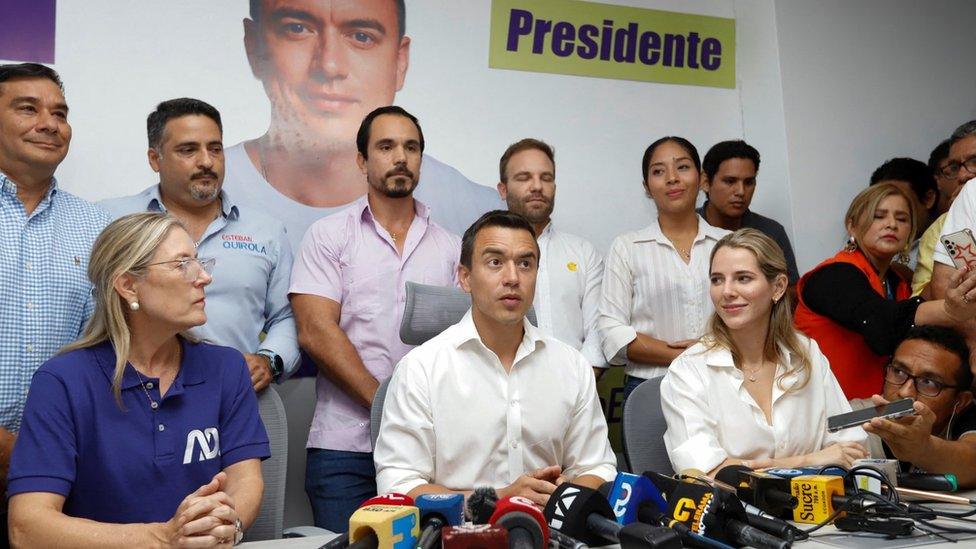
Daniel Noboa (centre) is seen by many voters as a pro-business candidate
But the second-place candidate was less expected. Young businessman Daniel Noboa won 24% of the votes after a good performance in the last debate.
As Ecuadoreans cast their vote on Sunday, security was top of the agenda.
"Things are very complicated," says 33-year-old personal trainer Priscila Jaramillo. "After the death of Villavicencio, I think that we need to unite."
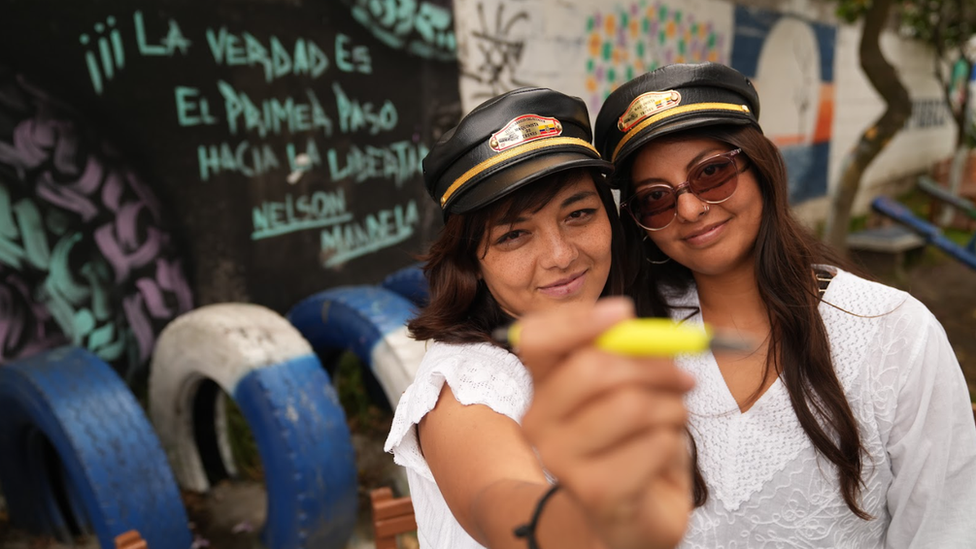
Amanda (left) and Tamia say they are honouring their murdered father's legacy of campaigning for peaceful change
Experts agree that the brutal campaign has changed the views of many people here.
"Violence is a feeling for the voter," says political analyst Pedro Donoso. "The reality of living in a country where authorities are murdered, a candidate has been assassinated - that could have been an important factor in deciding who to vote for."
Fernando Villavicencio's daughters, Tamia and Amanda, went to the polls on Sunday dressed in white. It was a message to those who killed their father that they will honour his legacy of campaigning for peaceful change in the country.
A thick dark blue line was painted across Tamia's face, made with ink from the huito fruit - a traditional face-painting among indigenous communities in Ecuador.
"It's used for celebrations and battles, and today we're standing strong and coming to exercise a right that has been abused because they took away one of our presidential candidates," says Tamia.
"For me, this is a battle. We are fighting with our pen in our hand."
Her sister Amanda says the death of her father, whom she considered a best friend, has been a wake-up call for many Ecuadoreans.
"He was beautiful, powerful, kind - a giant," she says.
"We're living a powerful historic moment here in Ecuador. So many of my friends, people of my age who used to spoil their votes, people who didn't care about politics are upset - and they're thinking, if I don't do something for my country, for myself, then nothing will change, the mafia will come and dominate us," adds Amanda.
Beyond violence, though, there's another powerful force at play here in Ecuador - "correismo".
The political movement started with leftist populist president Rafael Correa - a politician who spent on education and health programme. He later got caught up in corruption scandals and is now exiled in Belgium.
But he remains a huge political force in Ecuador.
Luisa González is the protégé of Mr Correa - she is the vote for "correismo".
Meanwhile, Daniel Noboa will get the vote from those who want to draw a line under Mr Correa and who blame the former president for much of Ecuador's woes.
"Ecuador remains divided between two axes," says Sebastian Mantilla Baca, executive director of the Latin American Centre of Political Studies in Quito.
"It's likely that the vote of the other candidates will go towards Noboa as an alternative to 'correismo'. But if he doesn't manage to get solid support in the National Assembly, then that will create obstacles from the opposition."
This country is divided politically, but the search for peace and security unites Ecuadoreans - and that will be at the heart of campaigning as the country heads to a second round.
Fernando Villavicencio was shot as he left a rally in Quito
- Published21 August 2023
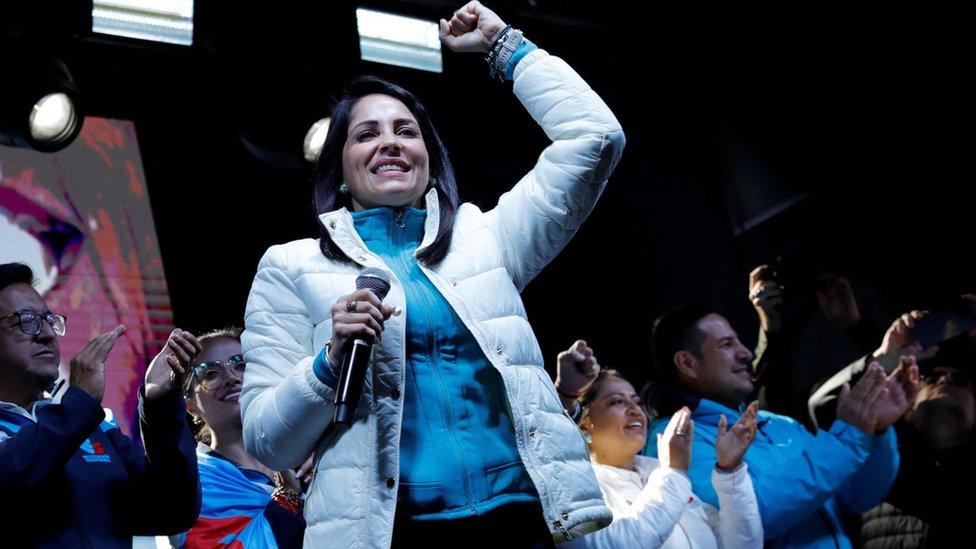
- Published19 August 2023
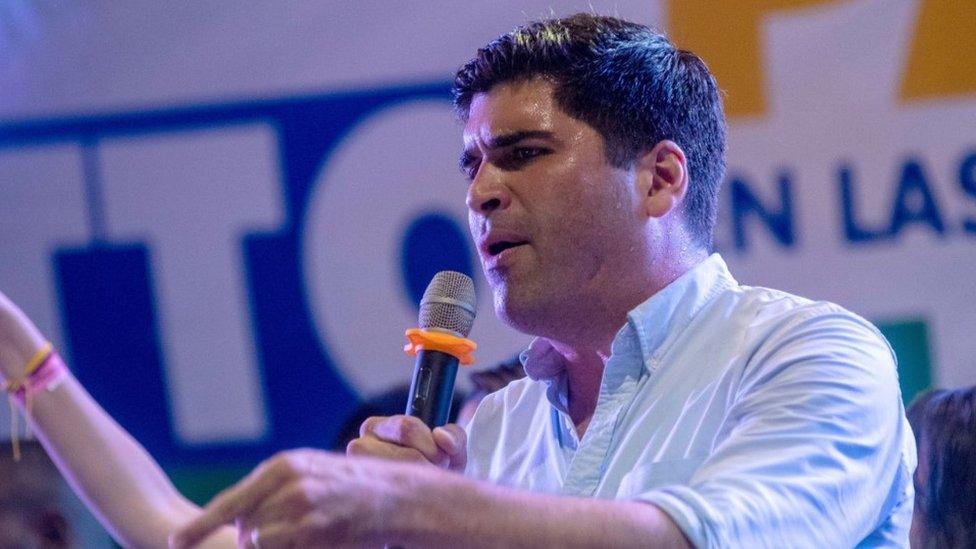
- Published15 August 2023
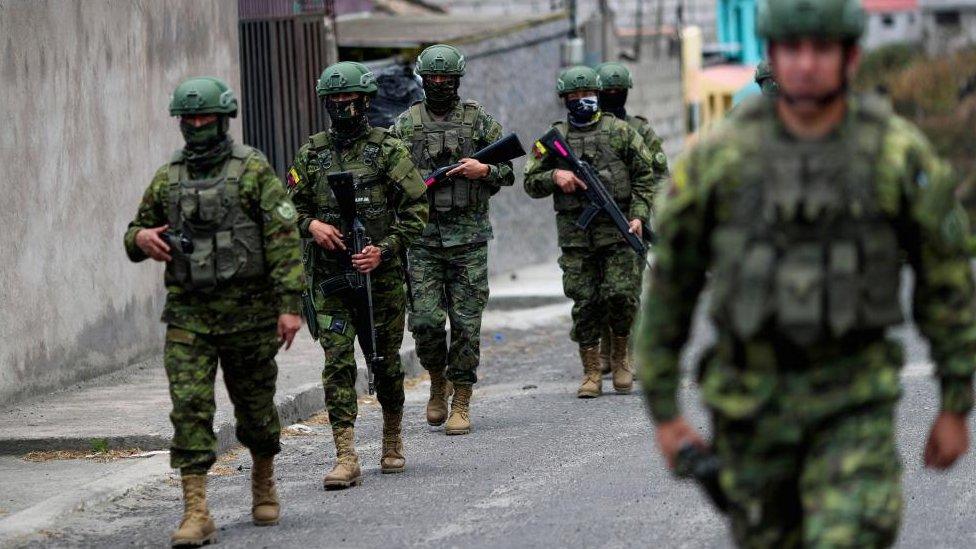
- Published16 August 2023
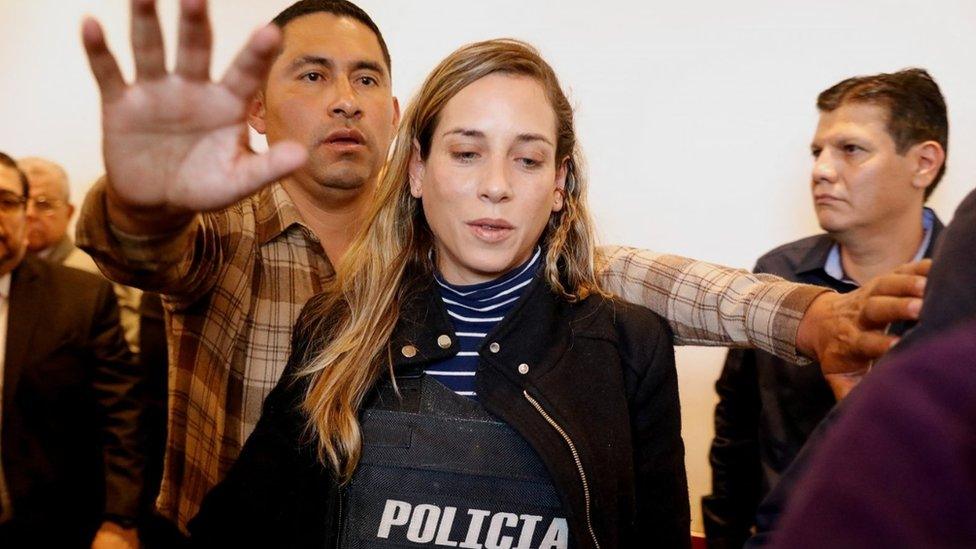
- Published13 August 2023
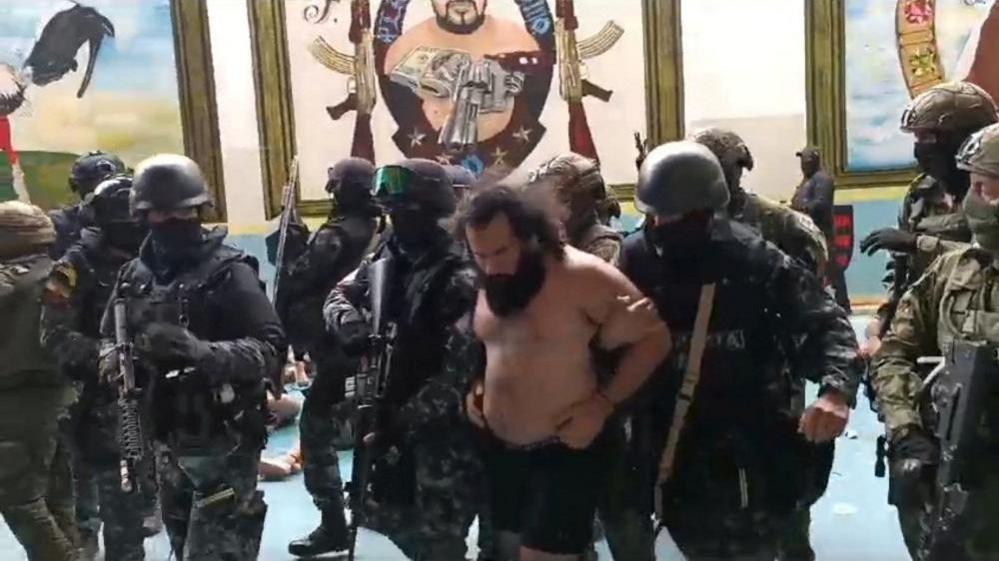
- Published18 August 2023
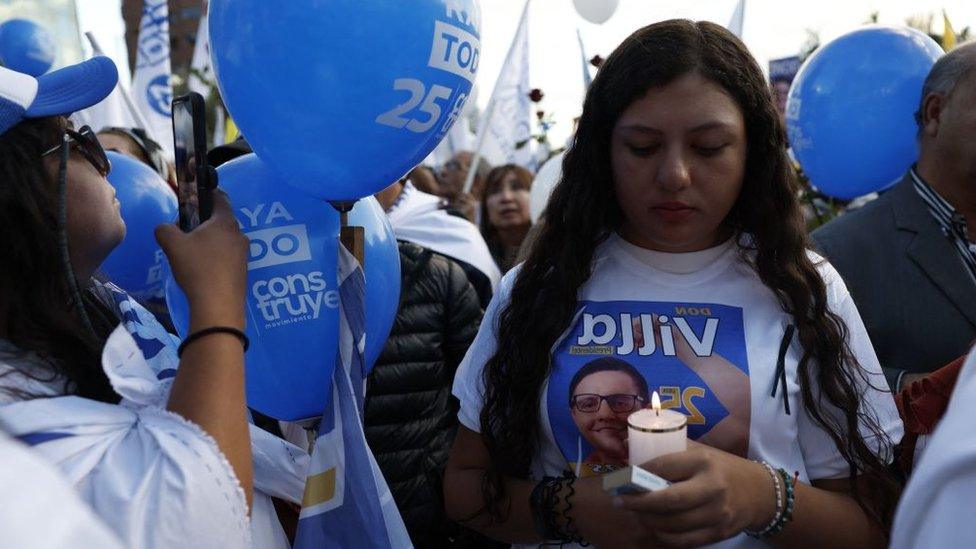
- Published24 July 2023
